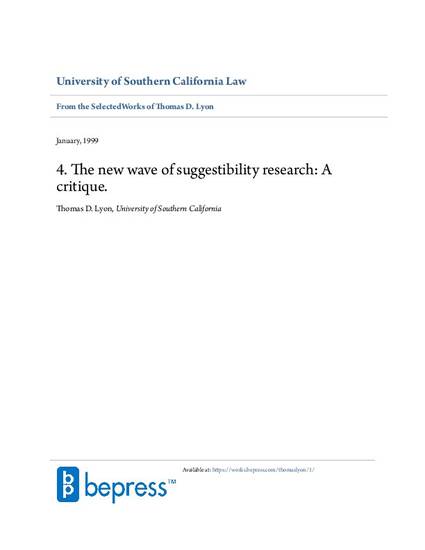
Article
4. The new wave of suggestibility research: A critique.
Cornell Law Review
(1999)
Abstract
The new wave in children's suggestibility research consists of a prestigious group of researchers in developmental psychology who argue that children are highly vulnerable to suggestive interviewing techniques. Because of its scientific credentials, its moderate tone, and its impressive body of research, the new wave presents a serious challenge to those who have claimed that children are unlikely to allege sexual abuse falsely. Although we can learn much from the research, concerns over society's ability to detect abuse motivate three criticisms. First, the new-wave researchers assume that highly suggestive interviewing techniques are the norm in abuse investigations, despite little empirical evidence to support this claim. Second, the research neglects the characteristics of child sexual abuse that both make false allegations less likely and increase the need to guard against a failure to detect abuse when it actually has occurred. Third, the researchers' apparent value-free scientific treatment of the suggestibility issue obscures, rather than avoids, value judgments regarding the tradeoff between false allegations and false denials of sexual abuse.
Keywords
- child witness,
- suggestibility research,
- child abuse,
- child neglect
Disciplines
Publication Date
January, 1999
Citation Information
Lyon, T. D. (1999). The new wave of suggestibility research: A critique. Cornell Law Review, 84, 1004-1087.
